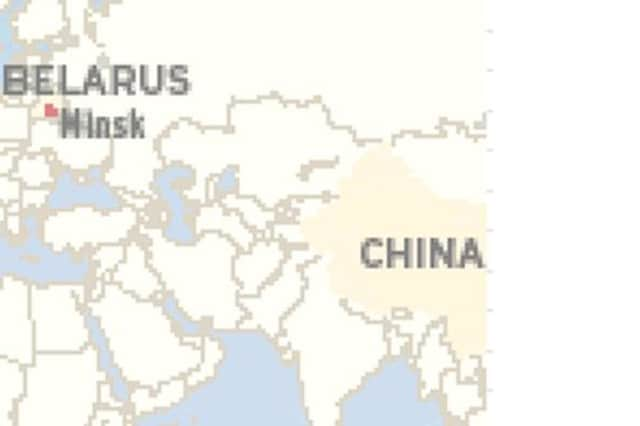China to build city and ‘gateway to West’ in Belarus


With a grandeur of scale reflecting the confidence of communist central planning, the China-Belarus Industrial Park will cover some 50 square miles of what are now forests and fields 15 miles to the east of Minsk.
Once completed, the park will contain enough accommodation for 150,000 people and will house colleges and hotels, along with factories that will produce Chinese-designed goods destined for the European market.
Advertisement
Hide AdAdvertisement
Hide AdIn a video promoting the virtues of the park Gong Jianwei, China’s ambassador to Belarus, claimed the project would “unite companies all over the world and benefit not only Belarus and China but all the countries under the sun”.
The £3.29 billion-project could breathe some life into Belarus’s moribund economy. Controlled by the unyielding grip of president Aleksander Lukashenko for 20 years, the former Soviet republic has had to turn to Moscow for emergency funding and the government has struggled to lift a standard of living languishing far behind western Europe.
Strengthening economic bonds with China could also lessen Belarus’s increasing international isolation over its human rights record. While Western countries have lined up to criticise Belarus and demand change, China has signed a number of trade agreements with a country it now regards as a kindred spirit and useful ally in a strategic part of Europe.
The park has not been welcomed by all Belarusians.
“This is the first step of the Chinese assimilation of Belarus,” said Mikhail Pashkevich, an activist for Tell the Truth, an independent organisation opposing the park. “Belarus needs investment but not in this way.”
He said previous Chinese-Belarusian construction projects have been designed and built entirely by Chinese staff.
“When the government says it means Belarusian jobs, it is not true,” said Mr Pashkevich. “It will all be done by the Chinese. Not one Belarusian will work there.”
Just how many Chinese workers will arrive to build the project remains unclear but Jaraslav Romanchuk, a former presidential candidate, claims it could be as many as 650,000. A figure which would mean one Chinese worker for every 14 Belarusian citizens.
The Chinese government, which is financing the project by granting low-cost loans to Belarus, is also set to benefit from generous tax breaks in the deal.